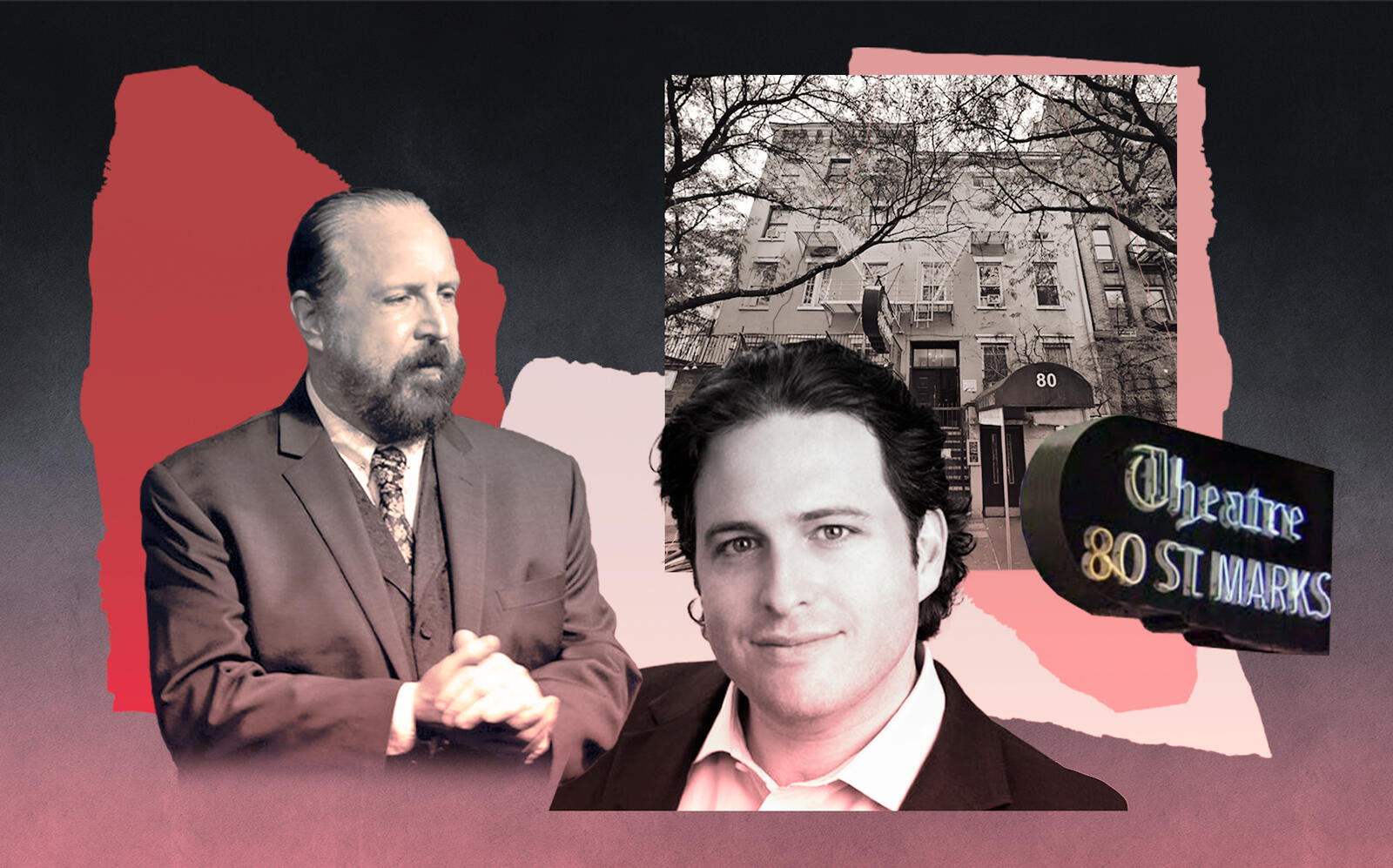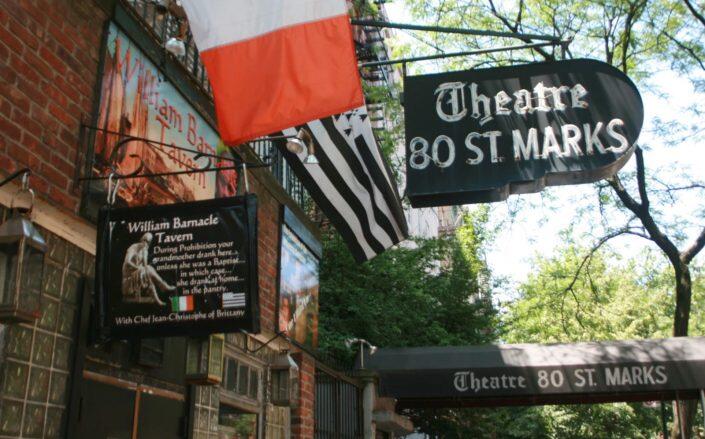Trending
Hardball lender Maverick seeks foreclosure sale on historic East Village theater
Owner of Theatre 80 St. Marks aims to refinance loan, halting sale

The historic building that has long housed Theatre 80 St. Marks in Manhattan’s East Village survived the threat of prohibition-era police raids or robbers making off with cash stashed in underground safes. Now, it faces a final curtain call from its lender.
Maverick Real Estate Partners, known for its hardball tactics, is using a provision that skirts a statewide moratorium on traditional foreclosures to try to go after the former speakeasy and home of the Museum of the American Gangster. Owner Lorcan Otway says he’s refinancing the loan to pay off his $6.1 million mortgage.

78-80 St. Marks Place (Theatre 80)
If Maverick succeeds in the UCC foreclosure sale at a Nov. 18 auction, it would be an inglorious coda to a downtown landmark that Otway’s father bought in 1964, giving him a street-level view of St. Mark’s Place as it morphed into a center of counterculture through the tumultuous 1960s and 1970s. More recently, the once-decrepit neighborhood has emerged as a tourist magnet and property values are rising.
New York-based Maverick, led by David Aviram, has a reputation for aggressively buying up the troubled debt of real estate landlords — big and small — before raising interest rates to as high as 24 percent. Maverick and its attorney in the sale, Steven Newman at Katsky Korins, didn’t return requests for comment.
When Maverick bought the loan in December from Hirshmark Capital, which originated it the previous year, Otway was trying to keep his business above water amid a pandemic-era ban on live performances and little direction on reopening from then-Gov. Andrew Cuomo. Otway said in an interview that he relied on the tavern and food service as the venue’s primary source of income during the pandemic.
“We don’t live an extravagant life,” Otway said. “Our primary focus is keeping this theater.”
Maverick’s purchase, as Otway was renegotiating terms with the original lender, came as a surprise, he said. He and his lawyer, Joshua Wurtzel of Schlam Stone & Dolan, say Maverick’s UCC sale will be called off once they complete the refinancing.
Maverick couldn’t proceed with a traditional commercial foreclosure last year because of the moratorium. The key: A UCC foreclosure that’s legal because the lender is technically seeking to take control of indirect equity interests in a property instead of the property itself. As part of the UCC sale process, Maverick must set an auction date at which third parties can bid. In many cases, lenders such as Maverick make “credit bids” using their own debt and take control of the property. Mannion Auctions is conducting the auction.
Maverick is among many high-profile lenders to attempt a UCC foreclosure in recent months. SL Green Realty recently took control of Ashkenazy Acquisition’s 690 Madison Avenue through a UCC foreclosure auction.
Maverick has sought to foreclose on a number of Manhattan properties. This summer, the firm sued Steve Croman, a notorious ex-convict, to foreclose on his four contiguous Kips Bay apartment buildings just one day after acquiring the loan. Maverick is also seeking to foreclose on a $30 million condo at 432 Park Avenue, whose owner has stopped paying the mortgage and whose original lender has reportedly been detained in China.
“They are an equal opportunity predatory lender,” Wurtzel said. “They are willing to go after the big real estate investors and they will go after the mom and pop.”
Update: This story has been updated to fix spelling of “Theatre” in first paragraph.




